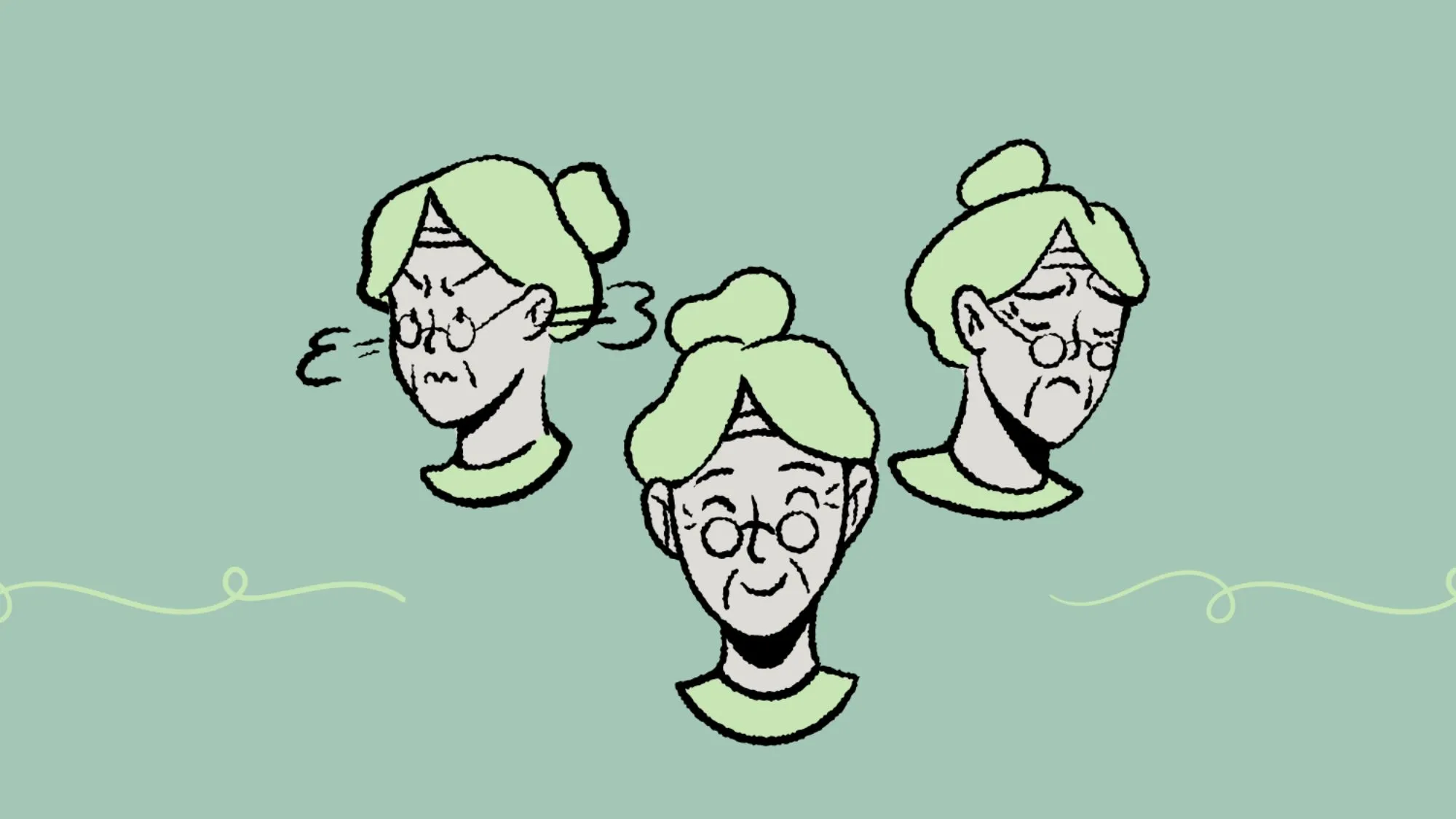
When we talk about mental health, most of the time we focus on negative emotions such as anxiety, depression, and stress. However, there is another side to mental health that is often overlooked – expansive mood. This is a state of mind where individuals feel on top of the world, like they can conquer anything, and can be accompanied by high energy levels, increased creativity, and productivity.
Expansive mood is a fascinating and multifaceted phenomenon that can have both positive and negative effects on an individual person’s mental health. While it can lead to increased self-esteem, confidence, and a general sense of well-being, it can also lead to impulsive behaviors, poor decision-making, and risky behavior. Moreover, if left untreated, it can be a sign of an underlying mood disorder, such as bipolar disorder.
In this article, we’ll explore expansive mood in more detail, including its definition, causes, symptoms, and effects on mental health. We’ll also look at the different types of expansive moods and disorders that are associated with expansive mood, and the various treatment options available. Whether you’re curious about this fascinating phenomenon, or looking for ways to manage it, this article has got you covered. So, let’s dive into the world of expansive mood together and learn about this intriguing state of mind.
What is Expansive Mood?
Expansive mood is a fascinating phenomenon that is characterized by a state of mind filled with unusual![]() feelings of grandiosity and euphoria. It is a feeling of being on top of the world, and is often accompanied by high levels of energy. People who experience expansive mood may feel like they have the ability to conquer anything and may engage in impulsive behaviors, such as taking on new projects or ideas or spending money excessively.
feelings of grandiosity and euphoria. It is a feeling of being on top of the world, and is often accompanied by high levels of energy. People who experience expansive mood may feel like they have the ability to conquer anything and may engage in impulsive behaviors, such as taking on new projects or ideas or spending money excessively.
Despite its potential dangers, expansive mood can also have positive outcomes. For example, it has been linked to increased creativity, elevated mood, productivity, and a general sense of well-being. Furthermore, expansive mood is not always a sign of a mood disorder and can be a normal part of the human subjective experience itself.
However, it is important to note that persistent expansive mood swings can be a sign of an underlying mood disorder. When it lasts for an abnormally extended period of time or interferes with daily functioning, it can be a cause for concern. In such cases, it may be necessary to seek professional help in order to identify the root cause and receive appropriate treatment.
Causes of Expansive Mood
There are a variety of factors that can contribute to the development of expansive mood. While biological factors such as genetics and brain chemistry play a role, environmental factors such as stress and substance use can also be contributing factors.
Biological factors that contribute to the development of expansive mood include genetics and brain chemistry. For example, research has shown that people with a family history of bipolar disorder are more likely to experience expansive mood. Additionally, imbalances in neurotransmitters such as dopamine and serotonin can play a role in the development of expansive mood.
Environmental factors such as stress, substance use, and life events can also contribute to the development of expansive mood. For example, stressful life events such as the loss of a loved one or financial difficulties can trigger expansive mood. Similarly, substance use, particularly stimulants such as cocaine and amphetamines, can also contribute to the development of expansive mood.
Symptoms of Expansive Mood
Expansive mood is characterized by extreme expression of a range of symptoms and feelings that can be both positive and negative and can vary in severity from person to person.
Positive Symptoms
- Increased self-esteem and confidence: People experiencing expansive moods may have a heightened sense of self-worth and may feel more confident in their abilities.
- Elevated mood and feelings of euphoria: Expansive mood is often accompanied by intense feelings of happiness, excitement, and elation. They may act flamboyantly or excessively friendly.
- Increased energy and productivity: People with expansive mood may have increased levels of energy and may feel more motivated to take on new tasks or a goal-directed activity
- Increased creativity: People with expansive moods may experience an increase in creativity and may be more inclined to think outside the box.
Negative Symptoms
- Grandiosity and inflated sense of self-importance: People with expansive mood may believe that
 they are superior to others or may have an exaggerated sense of their own importance.
they are superior to others or may have an exaggerated sense of their own importance. - Racing thoughts and rapid speech: People may experience a stream of racing thoughts and may speak quickly, often to the point of being difficult to understand.
- Impulsive behavior such as spending sprees or risky sexual behavior: People with expansive mood may behave brashly, such as excessive spending or engaging in risky sexual behavior.
- Poor judgment and decision-making: People with expansive mood may make poor decisions or may engage in risky behaviors due to a lack of foresight or concern for consequences.
- Reduced need for sleep: People with expansive mood may find that they require less sleep than usual, and may experience difficulty falling asleep or staying asleep.
- Irritability or aggression when challenged: People with expansive mood may experience an irritable mood or depressed mood, particularly when their inflated sense of self-worth is challenged or questioned.
When to Seek Help For Expansive Mood
If you or someone you know is experiencing expansive mood for an extended period of time or if it is interfering with daily functioning, it may be a cause for concern and it is recommended to seek professional help. A mental health professional can help identify the root cause of the expansive mood and work with the individual to develop appropriate treatment options.
It is important to note that expansive mood swings can be a symptom of an underlying mood disorder, such as bipolar disorder. If left untreated, these disorders can have significant negative effects on an individual’s quality of life. Seeking help early on for bipolar disorder can lead to effective management of the condition and improved outcomes.[1][2]
How Expansive Mood Affects Mental Health
In this section, we’ll explore the positive and negative effects of expansive mood, learn about diagnosing and treating expansive mood disorders, and discover helpful coping strategies for those who experience expansive mood. Whether you’re curious about expansive mood or looking for ways to manage it, this section has got you covered. Let’s get started!
How Expansive Mood and Mental Health Affect Each Other
Expansive mood is a fascinating and multifaceted phenomenon that can have a profound impact on an individual’s mental health. It is a state of mind characterized by a heightened sense of self-confidence, optimism, and enthusiasm for life. This state can manifest itself in a variety of ways, including increased creativity and productivity, as well as a general sense of well-being.
However, it is important to note that expansive or elevated moods can also be a warning sign of an underlying mood disorder, such as bipolar disorder. In such cases, the positive effects of expansive or elevated mood can quickly turn into negative ones, with individuals experiencing extreme highs and extreme lows that can be debilitating. It is crucial to seek professional help if you or someone you know is experiencing symptoms of an underlying mood disorder.
In addition to these potential negative effects, it is also worth noting that expansive mood can sometimes lead to reckless behavior. This is because individuals experiencing this state of mind may feel invincible and overconfident, leading them to take risks that they would not normally take. This can be dangerous, both for the individual and for those around them.
Expansive Mood Disorders
Expansive mood can be a symptom of several mood disorders, including:
- Bipolar I Disorder. A bipolar disorder characterized by periods of expansive mood (mania) and periods of depression. During manic episodes, individuals may experience a superior or grandiose attitude, increased energy, racing thoughts, and impulsive behavior. During depressive episodes, they may experience symptoms such as sadness, hopelessness, and loss of interest in activities they once enjoyed.
- Bipolar II Disorder. A bipolar disorder characterized by periods of depressive episodes and hypomanic episodes. Hypomanic episodes are less severe than manic episodes. They are characterized by symptoms such as increased energy, elevated mood, and increased productivity.
- Cyclothymic Disorder. A mood disorder characterized by periods of hypomanic symptoms and depressive symptoms that occur for at least two years. The symptoms are less severe than those seen in bipolar disorder.
- Substance/Medication-Induced Bipolar and Related Disorder. A mood disorder caused by substance use or medication that results in a manic episode or hypomanic symptoms.
It is important to seek professional help if you suspect signs that you have bipolar disorder or someone you know may have an expansive mood disorder. Accurate diagnosis and appropriate treatment can help a person manage symptoms and improve outcomes.
Expansive Behavior in Bipolar Disorder
Expansive mood may be a symptom of several mood disorders, including bipolar disorder. Bipolar I disorder is a mood disorder characterized by periods of mania and depression. During manic mania episodes, individuals may experience a superior or grandiose attitude, increased energy, intense elation, racing thoughts, and impulsive behavior. During depressive episodes, they may experience symptoms such as sadness, hopelessness, psychotic features, and loss of interest in activities they once enjoyed. Bipolar II disorder is a mood disorder characterized by periods of depressive episodes and hypomanic episodes. Which are less severe than manic episodes and are characterized by symptoms such as increased energy, elevated mood, and increased productivity.
Expansive moods can be a sign of bipolar disorder. Individuals with bipolar disorder may experience expansive moods during manic episodes, which can last for several days or weeks. During these episodes, they may feel intense elation and a sense of euphoria and grandiosity, both feelings which can lead to extreme impulsive behaviors such as excessive unrestrained buying sprees, risky sexual behavior, or substance abuse.
Expansive Mood and Manic Episodes
Expansive moods are frequently associated with manic episodes. The signs of which are characterized by a heightened sense of euphoria and grandiose attitude. During a full manic episode however, individuals may experience a range of symptoms that can affect their daily lives. They may have racing thoughts, act flamboyantly, feel impulsive, behave brashly, be irritable, and require less sleep than usual.
It is important to note that expansive mood is a key feature of manic episodes and can be a warning sign of an underlying mood disorder, such as bipolar disorder. People experiencing mania may feel invincible and overconfident, leading them to take risks that they would normally avoid. This can be dangerous, not only for the individual in manic episode but also for those around them. It is important to seek professional help if you or someone you know is experiencing symptoms of a manic episode or any other mood disorder.
Furthermore, it is worth noting that there are many potential causes of an expansive moods. Including drug use, certain medical conditions, and even stress. It is important to identify the underlying cause of the mood change in order to determine the appropriate treatment. Seeking the help of a mental health professional can be beneficial in identifying the cause and developing a treatment plan that addresses the individual’s unique needs and circumstances.
Diagnosis of Expansive Mood Disorders
The diagnosis of an expansive mood disorder can be a complex process. Requiring a mental health professional with expertise in the field. Typically, a psychiatrist or psychologist will conduct a thorough assessment. That includes a detailed physical exam, a battery of laboratory tests, and a comprehensive psychological evaluation. During the evaluation, the mental health professional will review the person’s own medical condition and psychiatric history. As well as assess their symptoms and daily functioning. They may also conduct interviews with family members or other individuals who know the person well. In order to gain a more comprehensive understanding of their symptoms and how they are impacting their life.
Additionally, the mental health professional may use various diagnostic tools to aid in the diagnosis of an expansive mood disorder. These tools can include standardized assessments, rating scales, and questionnaires. That are designed to measure the severity of a person’s symptoms and track changes over a distinct period of time. These tools can be particularly useful in cases where a person’s symptoms are not clear-cut or where the diagnosis is complicated by other factors, such as comorbid medical conditions or substance abuse issues.[3]
Treatment Options
When an individual is diagnosed with an expansive mood disorder, their treatment typically involves a![]() combination of medication and therapy. Medications such as mood stabilizers, antipsychotics, and antidepressants can be quite helpful in managing symptoms. Prevents mood episodes from occurring. However, medication alone is not always sufficient; therapy can also be an important part of treatment. Cognitive-behavioral therapy, for example, can help individuals learn coping strategies and develop skills to manage their symptoms.
combination of medication and therapy. Medications such as mood stabilizers, antipsychotics, and antidepressants can be quite helpful in managing symptoms. Prevents mood episodes from occurring. However, medication alone is not always sufficient; therapy can also be an important part of treatment. Cognitive-behavioral therapy, for example, can help individuals learn coping strategies and develop skills to manage their symptoms.
That being said, medication and therapy are not the only options for managing symptoms of an expansive mood disorder. Lifestyle changes can also be quite helpful. For example, regular exercise can be an effective way to manage symptoms and improve overall well-being. Additionally, healthy eating habits are also important, as a well-balanced diet can help support mood stability. Stress management techniques such as meditation or yoga can also be effective in managing symptoms.
Lifestyle changes are not a substitute for medication and therapy. But rather a complement to these treatments. Individuals with this kind of disorder should work closely with their healthcare provider. To develop a comprehensive treatment plan that takes into account all of their needs. Maintaining a stable sleep schedule and avoiding substances such as alcohol and drugs, which can worsen symptoms, are also crucial components of any treatment plan.
Using an App to Track Expansive Moods
Having a mood diary is crucial for your health, and the CareClinic app can help with that. You can use the app as your health and clinical journal. Just go to the diary section of the app and enter your daily moods or other triggers, as they occur. There are also specific sections on the app to track each of these. You can also input information about your daily activities, sleep patterns, diet, and personal circumstances or other notes. The app will spot patterns and create a detailed report based on the symptoms you give it. Next time you visit the therapist, this information will be handy in your pocket.
The app also has a medication section where you can precisely track the medicine you are taking. Receive reminders on when to take each medication. We know how easy it can be to forget about taking medications, so we hope to make it as easy and streamlined as possible so you make a better health decision. Mobile apps such as the CareClinic app has given people the ability to track their health much easier!
Conclusion
The phenomenon of expansive mood is a fascinating and multifaceted aspect of mental health that is often overlooked. While it can have positive effects such as increased creativity and productivity, it can also lead to impulsive behavior and risky decision-making. When left untreated, it can be a sign of an underlying mood disorder, such as bipolar disorder. Seeking professional help is important to identify the root cause and receive appropriate treatment options. Treatment typically involves a combination of medication and therapy, and lifestyle changes can also be helpful. By understanding the complexities of expansive moods and the importance of seeking help when necessary, individuals can better manage their mental health and improve their quality of life.
Sources:
- https://www.verywellmind.com/signs-of-expansive-mood-380102
- https://psychcentral.com/bipolar/expansive-affect
References
- “EXPANSIVE MOOD Definition in Psychology”. https://encyclopedia.arabpsychology.com/expansive-mood/
- “Mood Disorders | Johns Hopkins Medicine”. https://www.hopkinsmedicine.org/health/conditions-and-diseases/mood-disorders/
- “Bipolar disorder”. https://en.wikipedia.org/wiki/Bipolar_disorder


 they are superior to others or may have an exaggerated sense of their own importance.
they are superior to others or may have an exaggerated sense of their own importance.